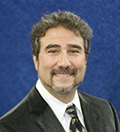Landlord/Tenant Issues: Defining “Broom Clean” and “Normal Wear and Tear” Condition at Move Out
This article can help prevent a law suit arising over the interpretation of the terms “broom clean” and “normal wear and tear” at the early stages of drafting a lease agreement. If the lease is already in effect with these ambiguous terms, then this author offers a suggestion to prevent a conflict after the tenant moves out.
Most commercial leases contain agreements regarding termination of a lease and move-out conditions. Additionally, the lease will stipulate what the tenant’s versus the landlord’s obligations and rights are regarding maintenance throughout the lease term. Often, the lease language places the obligation with the tenant to maintain the premises and repair damages made by the tenant to the premises prior to move-out. The common exception to repairs is the “normal wear and tear” that occurs to the premises from the course of reasonable use. Further, the lease may stipulate the tenant leave the premises “broom clean” and free of debris. Disputes arise from this terminology and the differing interpretations and points of view taken between the landlord and tenant.
Repair and maintenance, although seemingly similar and related, are separate terms and both the landlord and tenant may have the obligation to do both under the terms of the lease, and at the end of the term to leave the premises “broom clean, normal wear and tear excepted”. But the lease usually does not specify exactly what “normal wear and tear” and what “broom clear” actually mean. For example, if something is worn out and repairs are to be made, it should be worn out because of reasonable wear and tear from normal use despite normal maintenance from the tenant.
Leases can be open to interpretation when it comes to move-out condition. A lease may state that the premises be left “broom clean” or as it was found upon move-in with exception to “normal wear and tear”. Or, a lease may stipulate that the tenant leave the premises in a condition that the tenant fulfilled its’ obligations of regular maintenance and repair. When signing the lease, both parties may seem to have a clear understanding as to what these terms means, but after time, varying interpretations arise.
In my experience testifying as an Expert Witness in Landlord/Tenant issue trials, attorneys will argue extensively over the meaning of these terms often leaving it to the judge to ultimately decide what they mean. This author recommends that the terms “normal wear and tear” and “broom clean” be more clearly defined in an addendum when the lease is signed. This ensures that both parties are of the same mind from the start and lawsuits at the end of lease term can be avoided.
If the lease is already written without the enhanced definitions of these terms, after the tenant moves out, often there will be a conflict. To help avoid this conflict, the landlord and tenant will want to meet before the tenant moves out to create a mutually agreeable written and signed punch list of the condition that the landlord expects the tenant to leave the premises.
It is recommended that the landlord and tenant get proper legal advice in regard to this, and to have the assistance of an experienced commercial real estate broker as well. The minimal time and money spent up front enhancing the clarity of these terms will prevent a great deal of cost and strife in the future.

Robert Kehiayan, CPM® has a B.S. in Business Management from Pepperdine University and currently resides in Orange County, California. He holds the CPM® credential and is a licensed Real Estate Broker in both California and Texas. He has multiple industry awards and is a published author. Robert has over 35 years of brokerage, property and asset management experience with a diverse range of investment real estate properties. Further, Robert is an active qualified Expert Witness in the field of commercial real estate in Orange County, CA and teaches Commercial Real Estate Investment classes locally. For more information visit: www.expertREwitness.com or email Robert at rkehiayan@investment-resource.com

